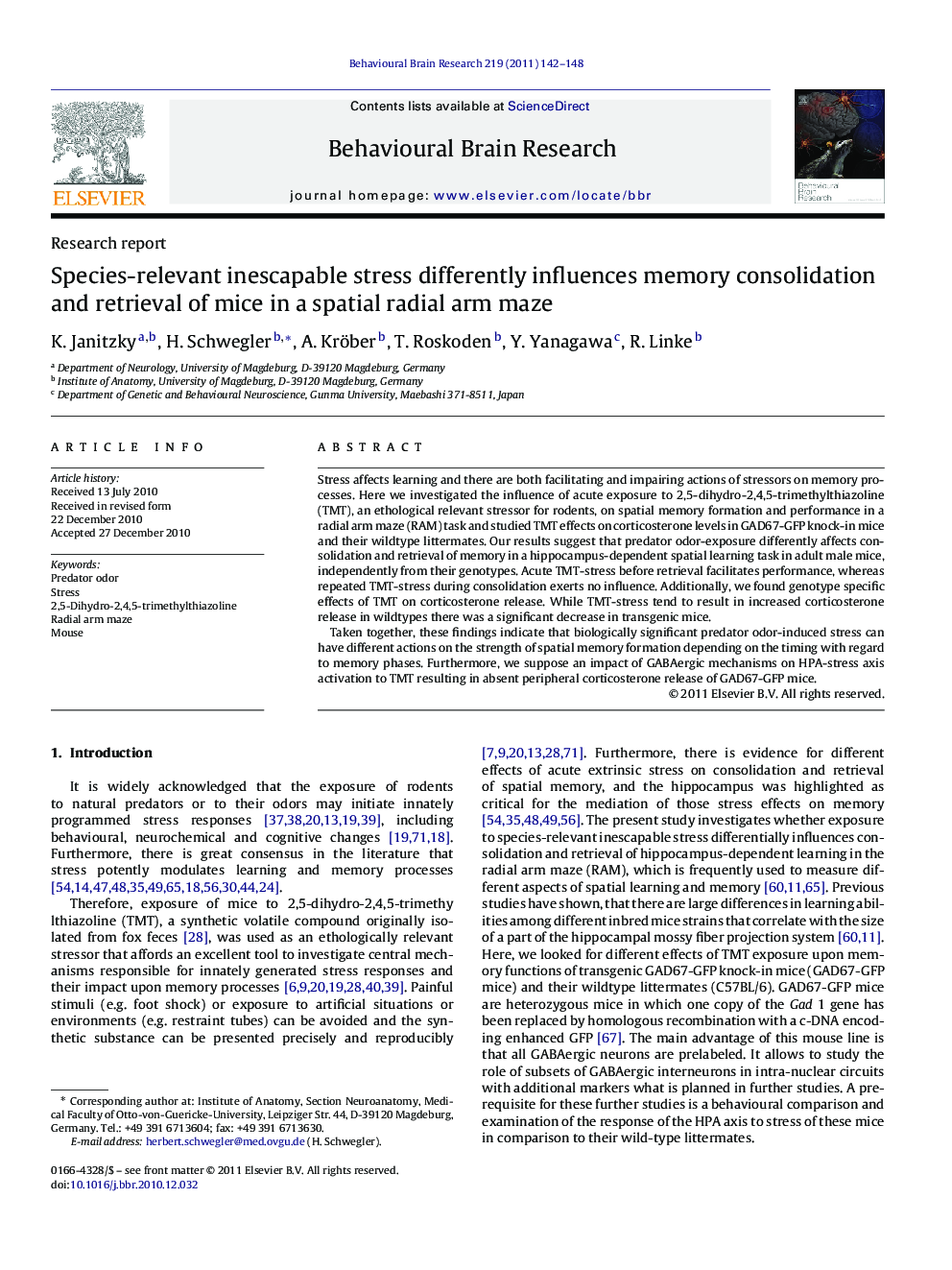| Article ID | Journal | Published Year | Pages | File Type |
|---|---|---|---|---|
| 6259864 | Behavioural Brain Research | 2011 | 7 Pages |
Stress affects learning and there are both facilitating and impairing actions of stressors on memory processes. Here we investigated the influence of acute exposure to 2,5-dihydro-2,4,5-trimethylthiazoline (TMT), an ethological relevant stressor for rodents, on spatial memory formation and performance in a radial arm maze (RAM) task and studied TMT effects on corticosterone levels in GAD67-GFP knock-in mice and their wildtype littermates. Our results suggest that predator odor-exposure differently affects consolidation and retrieval of memory in a hippocampus-dependent spatial learning task in adult male mice, independently from their genotypes. Acute TMT-stress before retrieval facilitates performance, whereas repeated TMT-stress during consolidation exerts no influence. Additionally, we found genotype specific effects of TMT on corticosterone release. While TMT-stress tend to result in increased corticosterone release in wildtypes there was a significant decrease in transgenic mice.Taken together, these findings indicate that biologically significant predator odor-induced stress can have different actions on the strength of spatial memory formation depending on the timing with regard to memory phases. Furthermore, we suppose an impact of GABAergic mechanisms on HPA-stress axis activation to TMT resulting in absent peripheral corticosterone release of GAD67-GFP mice.
Research highlightsⶠTMT is an ethologically relevant stressor in mice. ⶠAffects consolidation and retrieval in spatial learning. ⶠAcute exposition before retrieval facilitates performance. ⶠRepeated exposition during consolidation has no influence on performance.
